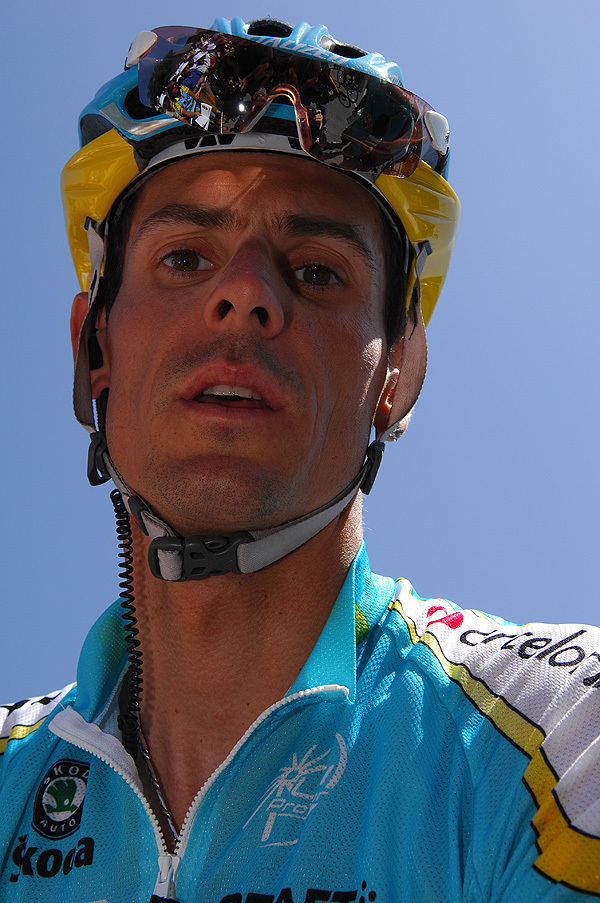Kloden named in German doping investigation


A 60-page report detailing the illicit doping practices of riders in the German-based T-Mobile team from 1995 to 2007 has implicated current Astana rider Andreas Kloden, among others.
According to an in-depth article published by German magazine Der Spiegel, T-Mobile team doctors Lothar Heinrich and Andreas Schmid have been found to be responsible for systematic doping over a 12 year period, during which riders were given illegal performance-enhancing substances and blood transfusions.
Kloden, and T-Mobile team-mates Patrik Sinkewitz and Matthias Kessler travelled to the University Medical Center Freiburg, Germany, after the first stage of the 2006 Tour de France. Whilst at the clinic, all three riders met Schmid and received blood transfusions.
During the transfusion process, Sinkewitz's blood started to coagulate, and Schmid dismissed this as 'bad luck' and promptly starting using a second blood bag, which also coagulated. According to the report's authors, this constitutes a violation of German law relating to the practice of transfusing blood.
The report was produced by an independent commission appointed by the University of Freiberg, Germany, where the doping practices are centred. It took two years to complete, and its authors - Hans-Joachim Schafer, Wilhelm Schanzer and Ulrich Schwabe - left no stone unturned in their thorough investigation of the clinic's practices relating to the cycling team.
Both Heinrich and Schmid were sacked from the University Medical Center Freiburg in 2007, but are currently still free to practice medicine. Kloden has refuted the allegations.
Patrik Sinkewitz failed a test for testosterone in the 2007 Tour de France, and was suspended by the T-Mobile team. Matthias Kessler was sacked by Astana in July 2007 for failing an out-of-competition test for testosterone in April 2007.
Get The Leadout Newsletter
The latest race content, interviews, features, reviews and expert buying guides, direct to your inbox!
In May 2007, former Telekom (the name of the squad before it changed to T-Mobile) riders Rolf Aldag and Erik Zabel confessed to having used banned blood booster EPO during their years with the team.
Subsequently, their former team-mate Bjarne Riis - now the owner of the Saxo Bank team - also admitted to doping. Riis admitted to doping between 1993 and 1998, a period that includes his Tour de France win in 1996.
Telekom's 1997 Tour winner Jan Ullrich has also been heavily implicated in the Operacion Puerto drugs bust in Spain. Ullrich was sacked from the team in June 2006 and has since retired from the sport.
RELATED LINKS
Andreas Kloden: Rider Profile

Thank you for reading 20 articles this month* Join now for unlimited access
Enjoy your first month for just £1 / $1 / €1
*Read 5 free articles per month without a subscription

Join now for unlimited access
Try first month for just £1 / $1 / €1

Nigel Wynn worked as associate editor on CyclingWeekly.com, he worked almost single-handedly on the Cycling Weekly website in its early days. His passion for cycling, his writing and his creativity, as well as his hard work and dedication, were the original driving force behind the website’s success. Without him, CyclingWeekly.com would certainly not exist on the size and scale that it enjoys today. Nigel sadly passed away, following a brave battle with a cancer-related illness, in 2018. He was a highly valued colleague, and more importantly, an exceptional person to work with - his presence is sorely missed.
-
 FDJ-Suez, SD Worx-Protime, Lidl-Trek confirmed for Tour of Britain Women as strong list of teams announced
FDJ-Suez, SD Worx-Protime, Lidl-Trek confirmed for Tour of Britain Women as strong list of teams announced18 teams set to take part in four-day WorldTour stage race
By Tom Thewlis
-
 Cyclists could face life sentences for killing pedestrians if new law passed in England and Wales
Cyclists could face life sentences for killing pedestrians if new law passed in England and WalesReckless cycling currently carries a maximum two-year jail term
By Tom Thewlis